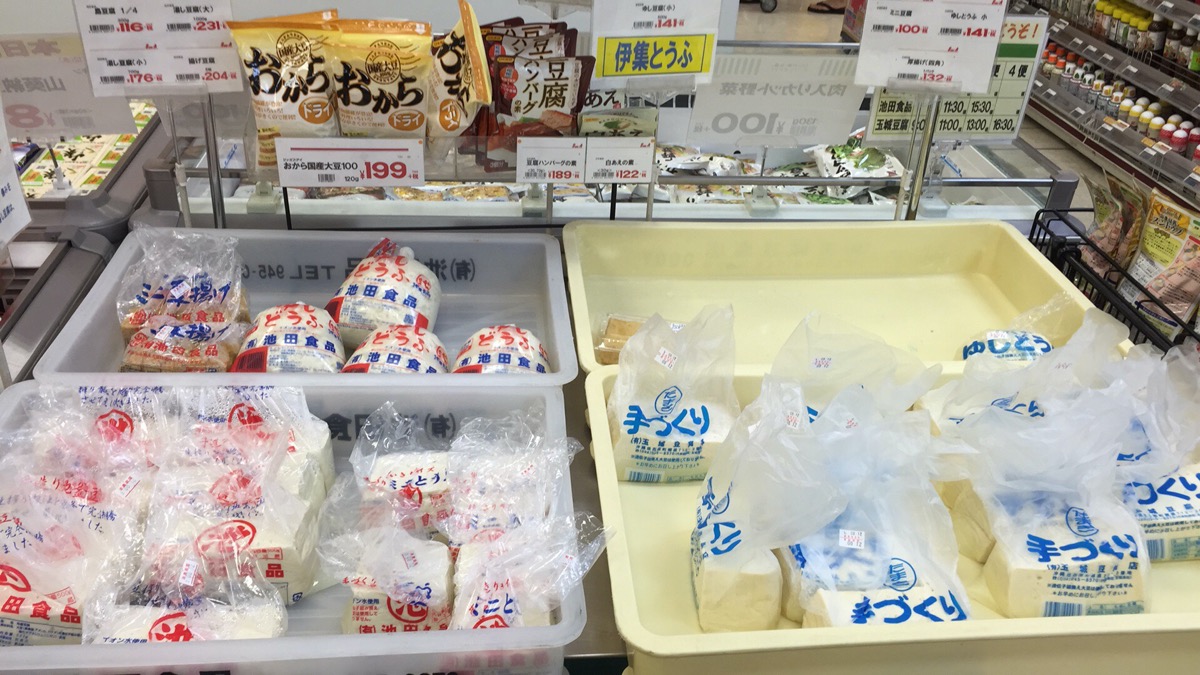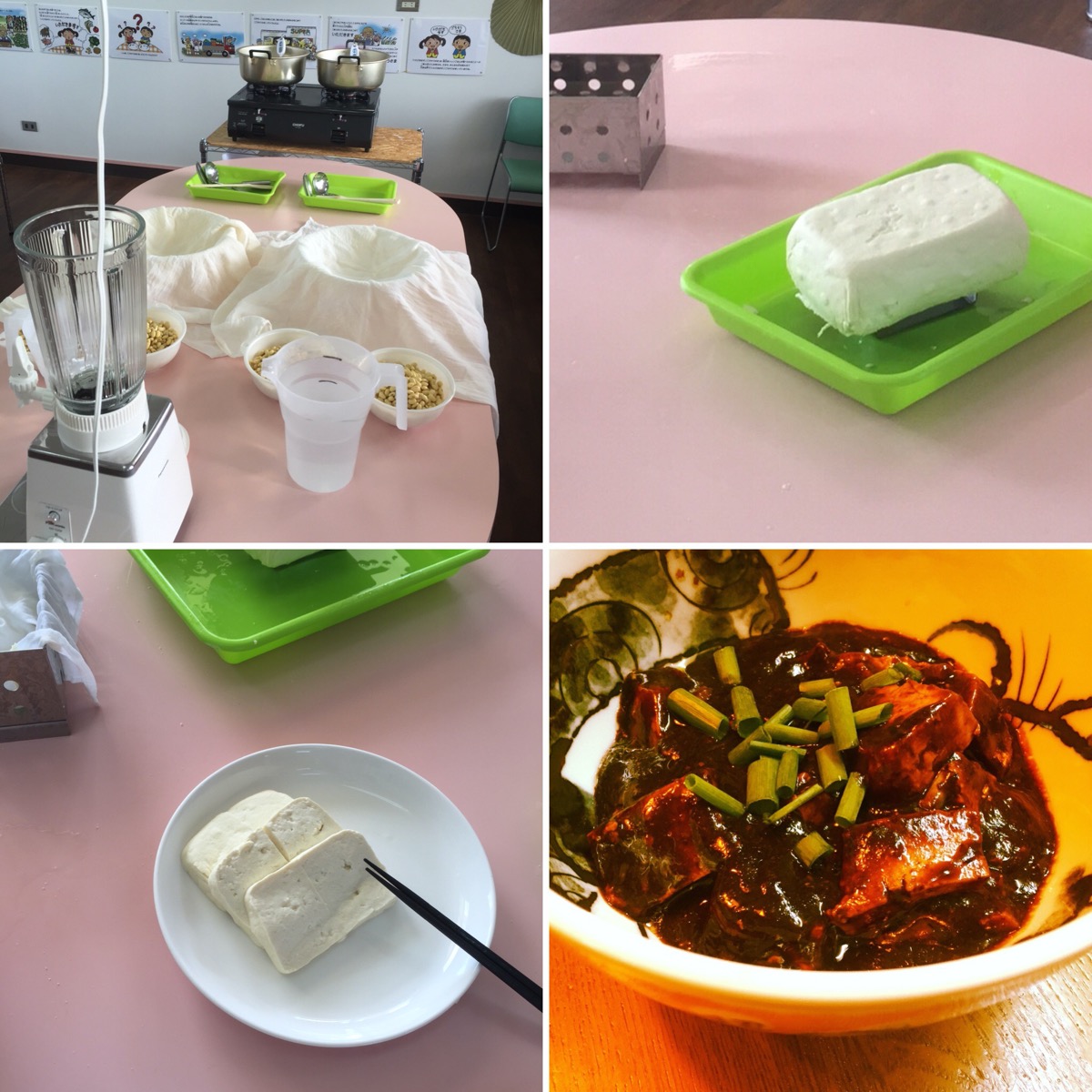豆腐 toufu: tofu
島 shima: island
島豆腐 shima-doufu: island tofu
Island tofu: Tofu in Okinawa is made differently than on mainland Japan. The best part is fresh tofu is delivered several times a day to grocery stores and markets all over island, still warm from the maker. It is the most amazing taste, and nothing like the little plastic packaged containers found in regular grocery stores. You can buy different types: yushi-doufu ゆし豆腐, firm tofu (called shima-doufu), and age-doufu 揚げ豆腐 (fried tofu) easily. One thing to remember is that it is delivered fresh multiple times a day– usually we only buy it the day we are going to make it, for the best taste. If you have some left over, put it in a lidded container filled with water; replace the water daily, but be sure to consume within a few days since it doesn’t contain preservatives.

We realized one day in the far future, we will probably return to Hawai’i and will no longer have this option. So, we decided we must learn how to make our own. I will share some secrets to the process in the link below: the link explains the process and show step-by-step picture instructions:
Here are the results from the fruits of our labor from AiAi Farm in Nakijin, on the Motobu peninsula of Okinawa.

If you read the linked imgur island, it explains the process. Nigari にがり is often used in the commercial and home process of tofu-making for coagulation to occur. That being said, it is actually traditional to use ocean water from the southern part of the island as it contains the proper minerals including MgCl2 for coagulation. And yes, I have tried both ways… collecting ocean water from not too far from my house, boiling it and using it in the process, it works great! But if you don’t live in southern Okinawa… well, nigari is just as good an option! It is very easy to find in the local grocery stores. Also at home, we modified a sushi-press box that I found cheap in one of the stores, though you can buy some plastic or metal ones out and about locally.
3 thoughts on “Shima-doufu: 島豆腐”